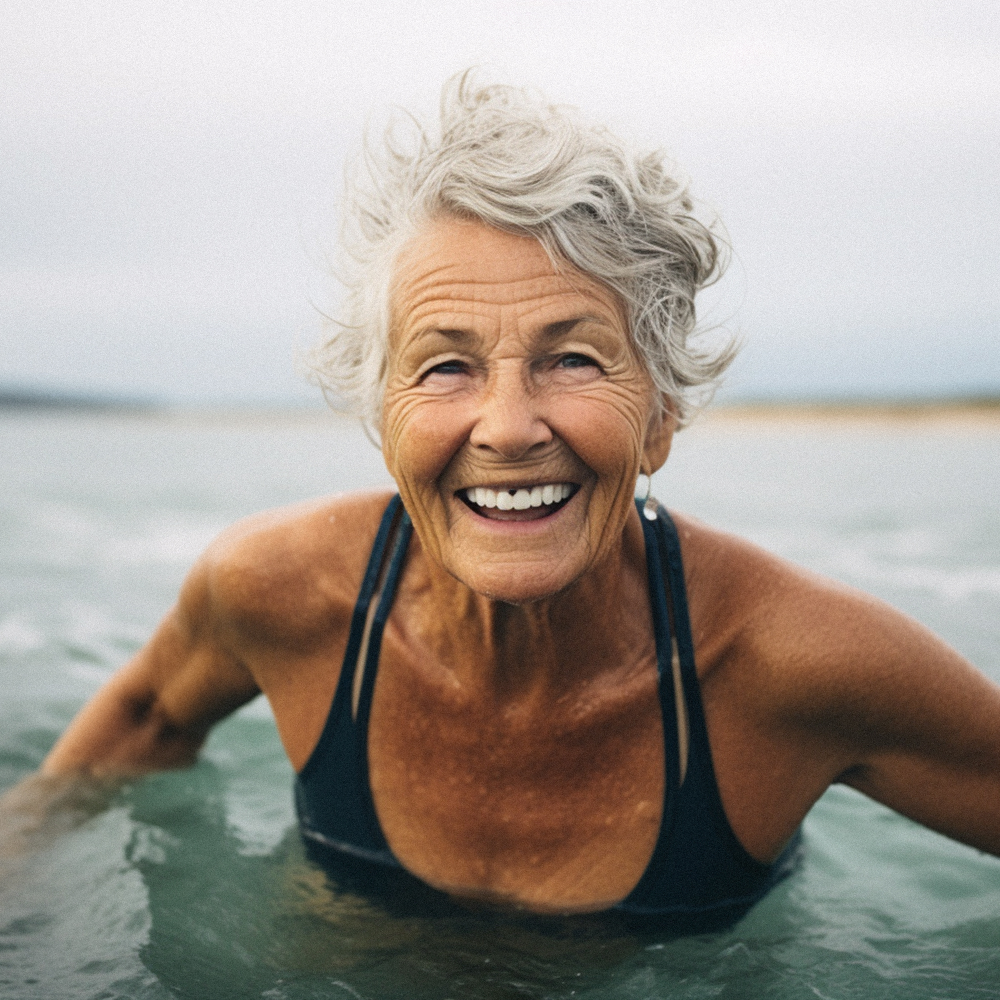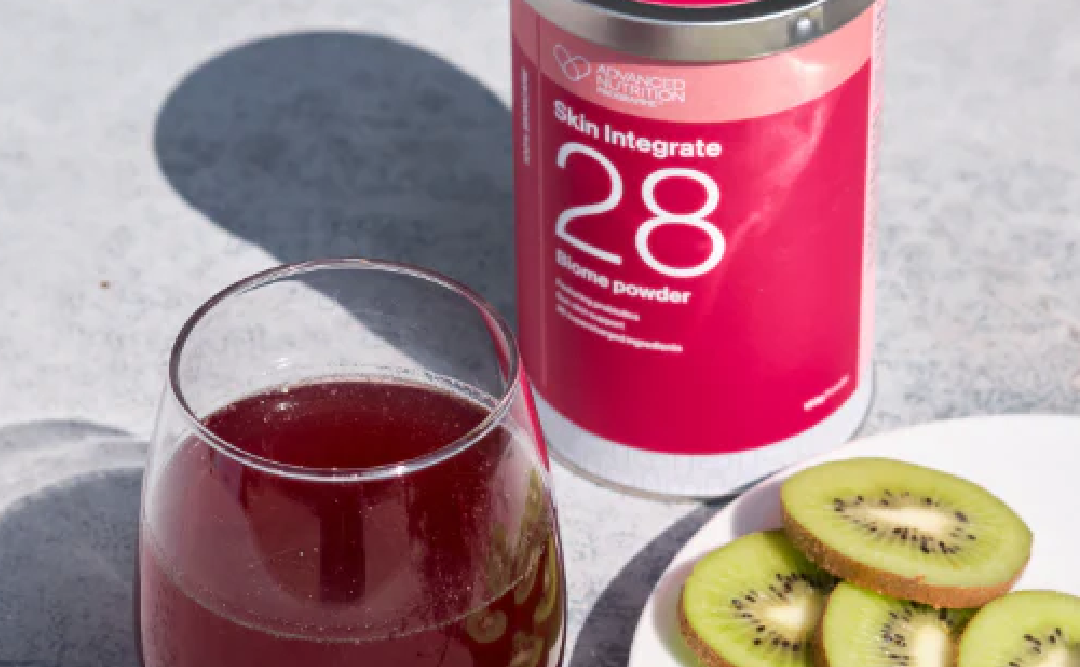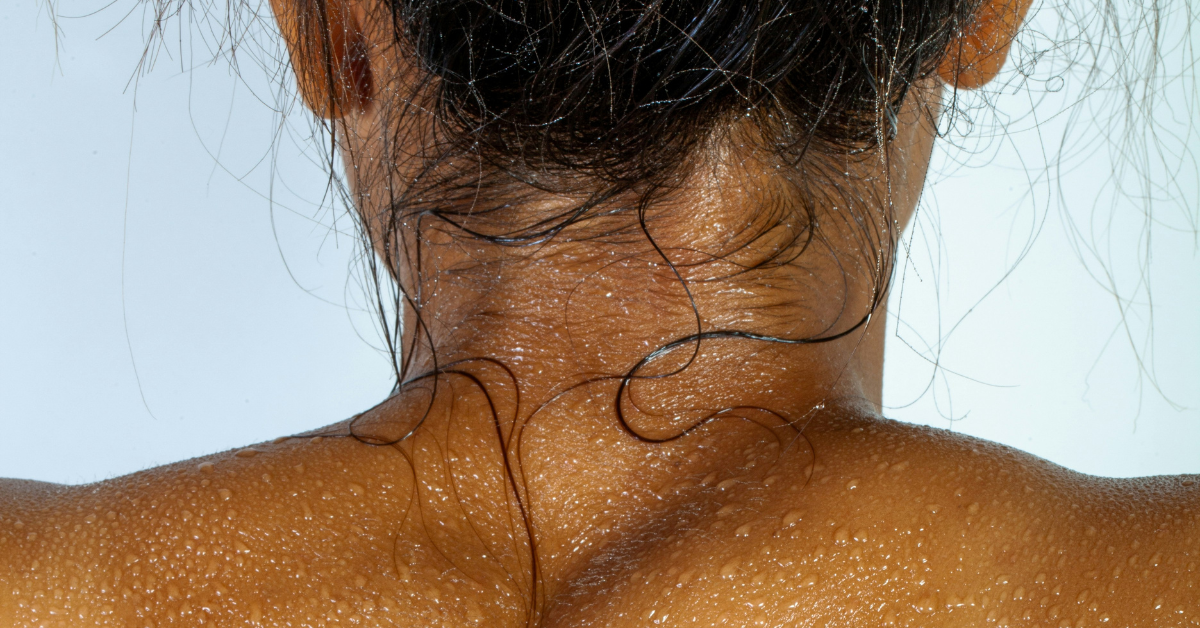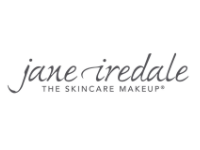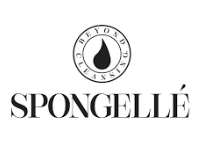To us here at MJ’s it’s not a debate, it’s just a fact. SPF should be worn year round, every day. Do you have a face? Yes? Then it should have sunscreen on it! We might sound blunt, but we feel it! SPF is one of the most important steps of your skincare routine – not just for how your skin looks, but for your overall health! There are constantly UVA rays, coming from the sun, through the windows, and from any type of light source or screen, so even if you don’t go outside – your skin could still be being damaged by these rays…
The facts
UVA and UVB light rays are always present, no matter if it’s winter, and no matter how cold and dark it is. UVB (Ultraviolet B) is the high-energy ray that penetrates and burns the epidermis (the more superficial layers of your skin). UVA (Ultraviolet A), on the other hand, is ageing, and is a longer, lower energy ray. You can’t feel it, but it penetrates deeper into the dermis and causes damage to your structural collagen. Both UVA and UVB cause cellular and DNA damage that lead to the hallmarks of photo-aged skin: lines, wrinkles, thickened texture and hyperpigmentation. They can also lead to skin cancers.
According to the Skin Cancer Foundation, both UVA and UVB rays can penetrate through clouds – in fact by a substantial amount. UVB rays only affect surface, whereas UVA rays penetrate down to the dermis which are more likely to cause problems to your DNA and cells etc leading to problems, such as cell mutations which can then lead to malignant growths. They also can reach your skin through glass, so don’t assume you’re protected solely by avoiding outdoor activities in colder months. Whilst many people have recently talked more about the risk of UVB rays, they actually only make up about 10% of the rays your skin will receive. It is UVA rays (as well as infrared) that are the issue. UVB is what will burn your skin, however UVA is what actually causes real damage, and ultimately more ageing issues. UVA is also any kind of light at all. Your phone, your laptop, your screens – everything gives it off which is why your skin always needs to be protected. This means even if you have tinted windows and do not go outside once all Winter – your skin can still be damaged if you don’t protect it!
How can you protect yourself from UVA in colder months – the ultimate guide
You can keep your skin as safe as possible this winter by:
- If it’s exposed, then protect it! Applying sunscreen to all exposed skin, even your lips and hands.
- Antioxidants are key to prevent damage too! Include an antioxidant product like a vitamin C serum or an Environ sunscreen with antioxidants in it to help mop up any excess damage.
- Reapply. You need to reapply your sunscreen. Even though it’s winter you still need to reapply roughly every 90 minutes – 2 hours. This is also why we recommend our Jane Iredale or et al SPF powder for top ups of SPF because you don’t probably want to reapply cream every two hours, and you can just top up your powder whilst protecting yourself from any harmful rays!
- Protect everywhere! Protecting the skin that’s exposed from reflected UV rays, like the underside of your chin and the bottom of your nose
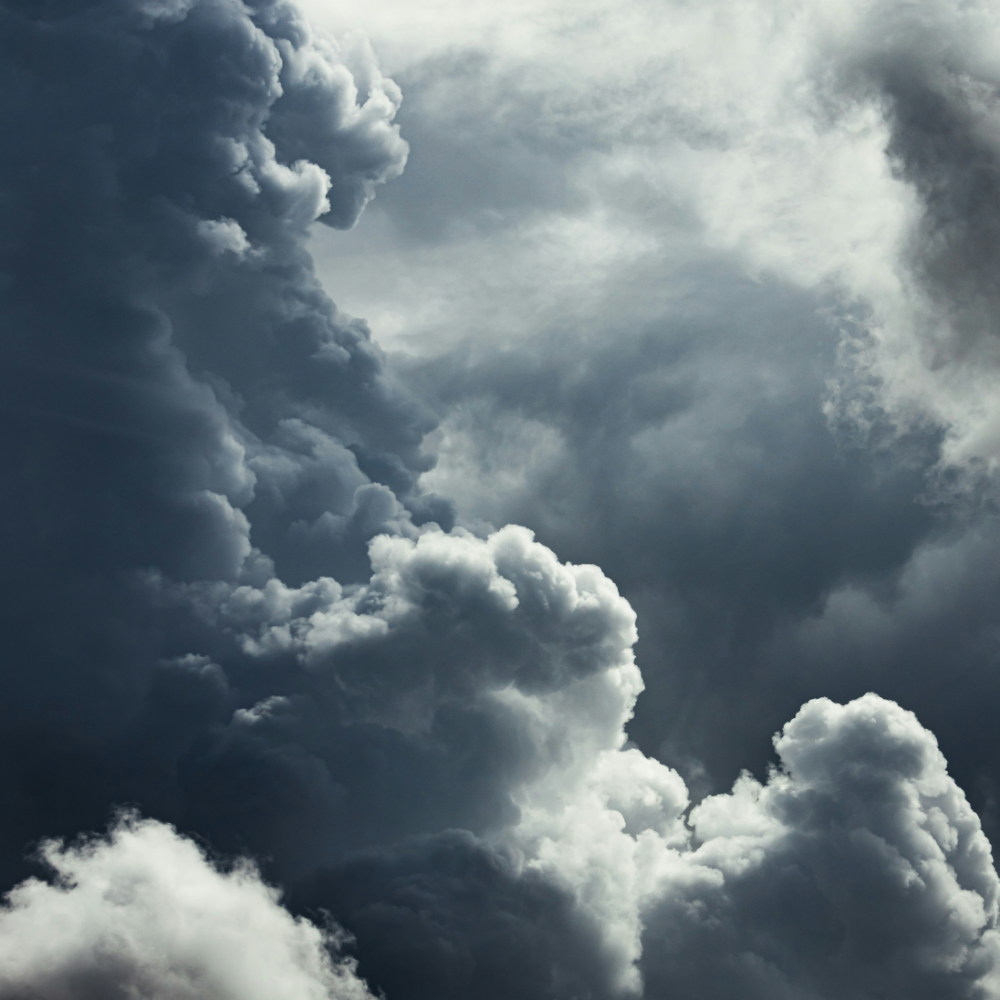
What sunscreen should I use in the Winter?
Both of the Environ sunscreens that we sell have antioxidants in them, which make them perfect to help fight the free radicals created by exposure to UVA and UVB rays.
- The ultimate all rounder, Environ RAD Antioxidant Sun Cream is a great choice as an everyday sunscreen It’s a mineral sunscreen which also a little bit of chemical so that it mops up any rays that might come through the mineral layer.
- If you have more sensitive skin or any issues going on, then RAD SHIELD Mineral Sun Cream is perfect as RAD SHIELD doesn’t have any chemicals in it.*
*There is nothing wrong with chemical sunscreens, they are a great choice for many people. If you’re using one we would recommend using a lower SPF, such as SPF 15. However, if your skin is irritated it’s good to avoid any chemicals whilst it’s flaring up.
You don’t need to wear SPF 50 to be safe…
Many people state you should always be wearing SPF 50 even when it’s dark and cloudy, which can put many off from wearing SPF everyday due to worries of it being white, thick and chalky. However, a sunscreen that contains SPF 15 has 97 percent protection from UVA and UVB rays, and a SPF 50 is 98 percent protection from those rays. This is also important to note, as the higher the SPF, especially when it has a chemical content, the more free radical damage it actually creates in the skin when it breaks down. The drop in percentage in cover from a lower SPF far outweighs in benefits the amount of free radical damage that can be caused by a higher SPF.
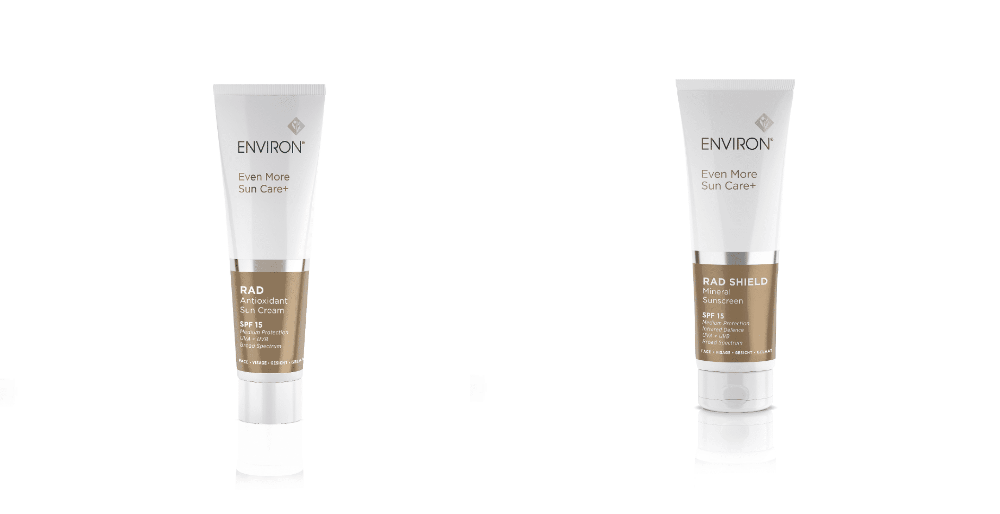
Wear that SPF!
In conclusion, while it may seem tempting to stash away the sunscreen when there’s no trace of sun, the importance of SPF year round and in every weather cannot be overstated. Autumn, Winter and Spring sun may feel less intense, but its harmful UVA and UVB rays are always present, posing a risk to our skin health. Whether we’re hitting the slopes, enjoying a walk, or simply going about our daily routines, SPF is always important to protect against premature ageing, skin cancer, and maintaining a radiant complexion. By incorporating SPF into our skincare regimen every day and year round, we not only safeguard our skin’s health but also uphold a proactive approach to self-care year-round. Sunscreen is essential for good skincare so it should always be part of your routine, and can be the key to your skincare issues and goals!

